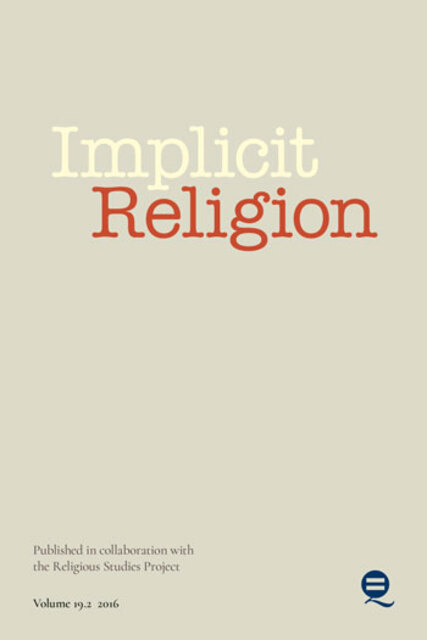The Co-constitution of Bad Religion and Unethical Sales: Fear at the Heart of Japan’s “Spiritual Sales”

Full description
Legal decisions surrounding activities associated with beliefs often described as “religious” usually conflate with laws and regulations that delineate other aspects of the context in which such activities occur. For example, transactions with psychics or fortune tellers usually need to abide by general consumer protection laws. In this article, I argue that controversies surrounding frauds and other troubles occurring during such transactions point to the equation “bad religion=unethical sales.” To explain my argument, I first compare the rise of “spiritual sales” as a legal category in Japan in the last 35 years, to British regulations of mediumship. I then proceed to locate the emotion of “fear” at the centre of debates about the appropriateness of these laws for consumer protection. I end up concluding that “spiritual sales” are yet another example in which, today, the consumer’s negative feelings have become the basis for claims of illegality, in contrast to how positive feelings are proof of sincerity and transparency.
- typeImage
- created on
- file formatjpg
- file size13 KB
- container titleImplicit Religion
- creatorIoannis Gaitanidis
- issn1743-1697 (online)
- issue25.3/4
- publisherEquinox Publishing Ltd.
- publisher placeSheffield, United Kingdom
- rightsEquinox Publishing Ltd.
- volume
- doi
We use cookies to analyze our traffic. Please decide if you are willing to accept cookies from our website. You can change this setting anytime in Privacy Settings.
